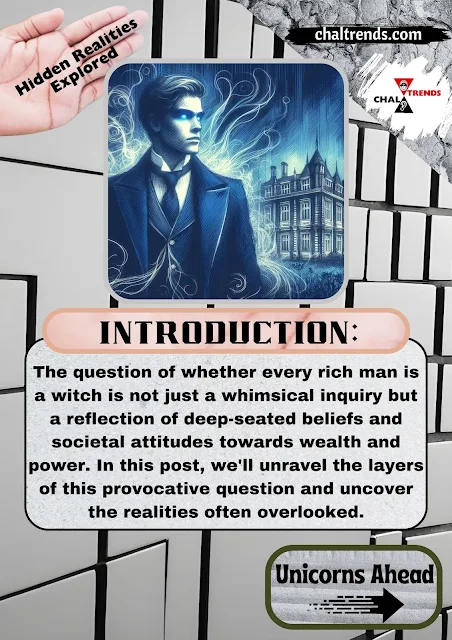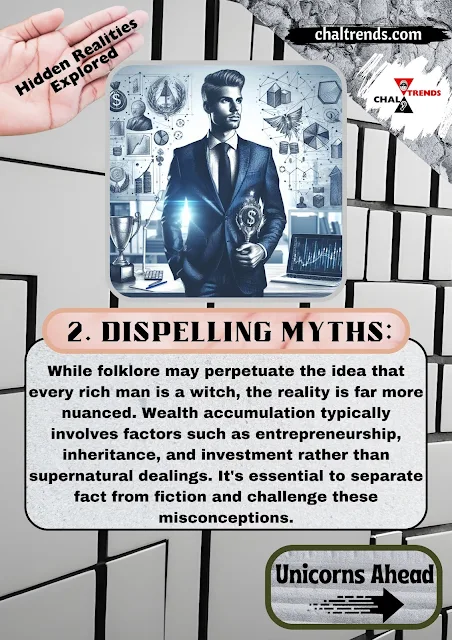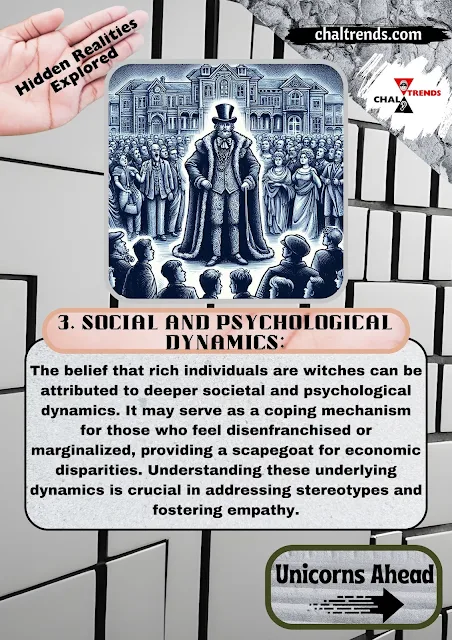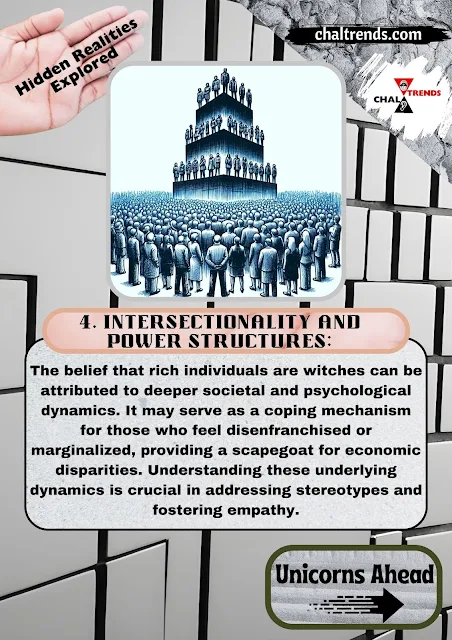Introduction:
The question of whether every rich man is a witch is not just a whimsical inquiry but a reflection of deep-seated beliefs and societal attitudes towards wealth and power. In this blog post, we'll unravel the layers of this provocative question and uncover the realities often overlooked.

1: Historical Roots of Suspicion:
Throughout history, wealth has often been accompanied by suspicion and intrigue. In times of economic disparity or social upheaval, the wealthy were sometimes vilified and accused of engaging in dark practices to amass their fortunes. This historical context sheds light on why the association between wealth and witchcraft persists.
2. Dispelling Myths:
While folklore may perpetuate the idea that every rich man is a witch, the reality is far more nuanced. Wealth accumulation typically involves factors such as entrepreneurship, inheritance, and investment rather than supernatural dealings. It's essential to separate fact from fiction and challenge these misconceptions.
3. Social and Psychological Dynamics:
The belief that rich individuals are witches can be attributed to deeper societal and psychological dynamics. It may serve as a coping mechanism for those who feel disenfranchised or marginalized, providing a scapegoat for economic disparities. Understanding these underlying dynamics is crucial in addressing stereotypes and fostering empathy.
4. Intersectionality and Power Structures:
Examining the intersectionality of wealth and power reveals how societal hierarchies shape perceptions of the wealthy. Accusations of witchcraft have historically been used to oppress marginalized groups, including women and minorities. The stereotype of the rich witch may reflect broader power dynamics and prejudices within society.
5. Economic Inequality:
While the notion of every rich man being a witch may be rooted in superstition, it highlights broader issues of economic inequality. The concentration of wealth in the hands of a few exacerbates social disparities and impedes opportunities for socioeconomic mobility. Addressing these systemic issues requires acknowledging the complexities of wealth distribution.
6. Challenging Stereotypes:
Challenging the stereotype of the rich witch requires fostering critical thinking and debunking harmful narratives. By promoting a nuanced understanding of wealth and power dynamics, we can counteract prejudice and discrimination. It's crucial to recognize that wealth does not inherently equate to witchcraft but can instead be a result of various legitimate factors.
Conclusion:
In conclusion, the belief that every rich man is a witch is a myth rooted in historical prejudice and societal dynamics. By examining the historical, social, and psychological dimensions of this belief, we can gain insight into broader issues of wealth inequality and power structures. Challenging stereotypes and promoting empathy are essential steps towards creating a more equitable society where wealth is not associated with supernatural accusations but with responsible stewardship and social responsibility.









.jpeg)





0 Comments